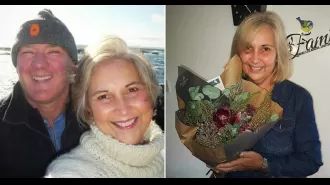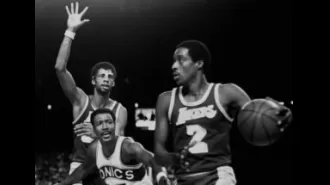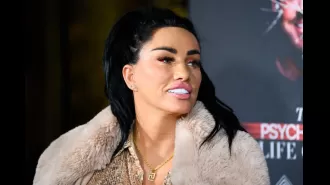White man sparks argument when he seeks guidance from 'Black TikTok' community regarding raising his adopted Black child.
36-year-old white man asks Black TikTok for advice on how to brush his adopted Black infant daughter's hair, sparking debate.
January 27th 2024.

On January 21, a man named Will, who is 36 years old and happens to be white, shared a video on TikTok. In the video, he was trying to brush his infant daughter Zoë's hair, who happens to be Black. Will and his husband had adopted Zoë, and in the video, he asked for guidance on how to properly care for her hair texture. Unfortunately, the video was later deleted due to backlash. Some accused Will of adopting Zoë solely for social media content.
Will has since expressed regret for the unintended message conveyed in the video. He understands the importance of creating an intentional community around Zoë. He wants her to grow up loving herself and all aspects of her identity, including her personality, skin color, and hair.
Transracial adoption, especially when white parents adopt Black children, has been a topic of debate for a long time. Research shows that Black adopted children who have a strong sense of ethnic and racial identity tend to have positive outcomes. However, difficulties arise when racial differences are ignored or downplayed.
Hannah Jackson Matthews, a transracial adoptee, shared her personal experiences with racism and feeling misunderstood. In response to these challenges, she founded HeyTRA, an online community that supports transracial adoptive families in navigating race, embracing their racial identity, and combating racism.
Matthews explained, "Adoptees grow up racially and culturally isolated from other adoptees. But with the internet, we have been able to see that we are a minority within a minority, but we are not alone."
Advocates and experts stress the importance of community for raising Black children in white families. The Donaldson report highlights the significance of acknowledging race, enrolling in diverse schools, and providing Black role models to instill a sense of racial pride in transracial adoptees.
In response to online claims that he did not consider race until after Zoë's adoption, Will clarified that he and his husband have discussed racism and its impact on Zoë's life. He also mentioned their involvement with a diverse community and seeking advice from Black friends, countering accusations of a lack of racial awareness.
Karen Valby, a white woman with two Black daughters, acknowledges that many white adoptive parents may not initially be aware of certain issues. However, she emphasizes the importance of learning and building connections within the Black community.
In conclusion, transracial adoption is a complex and ongoing conversation. It is crucial for white adoptive parents to educate themselves and create intentional communities for their Black children. By acknowledging race and embracing diverse cultures, we can help raise confident and proud transracial adoptees.
Will has since expressed regret for the unintended message conveyed in the video. He understands the importance of creating an intentional community around Zoë. He wants her to grow up loving herself and all aspects of her identity, including her personality, skin color, and hair.
Transracial adoption, especially when white parents adopt Black children, has been a topic of debate for a long time. Research shows that Black adopted children who have a strong sense of ethnic and racial identity tend to have positive outcomes. However, difficulties arise when racial differences are ignored or downplayed.
Hannah Jackson Matthews, a transracial adoptee, shared her personal experiences with racism and feeling misunderstood. In response to these challenges, she founded HeyTRA, an online community that supports transracial adoptive families in navigating race, embracing their racial identity, and combating racism.
Matthews explained, "Adoptees grow up racially and culturally isolated from other adoptees. But with the internet, we have been able to see that we are a minority within a minority, but we are not alone."
Advocates and experts stress the importance of community for raising Black children in white families. The Donaldson report highlights the significance of acknowledging race, enrolling in diverse schools, and providing Black role models to instill a sense of racial pride in transracial adoptees.
In response to online claims that he did not consider race until after Zoë's adoption, Will clarified that he and his husband have discussed racism and its impact on Zoë's life. He also mentioned their involvement with a diverse community and seeking advice from Black friends, countering accusations of a lack of racial awareness.
Karen Valby, a white woman with two Black daughters, acknowledges that many white adoptive parents may not initially be aware of certain issues. However, she emphasizes the importance of learning and building connections within the Black community.
In conclusion, transracial adoption is a complex and ongoing conversation. It is crucial for white adoptive parents to educate themselves and create intentional communities for their Black children. By acknowledging race and embracing diverse cultures, we can help raise confident and proud transracial adoptees.
[This article has been trending online recently and has been generated with AI. Your feed is customized.]
[Generative AI is experimental.]
0
0
Submit Comment





